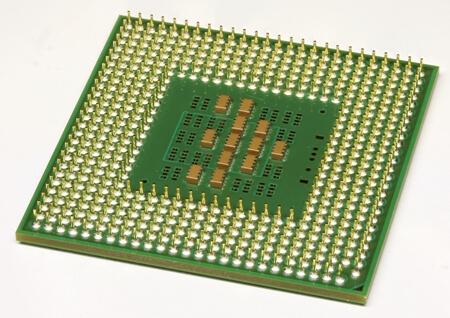Difference from 64-bit
The so-called 64-bit computer means that this computer uses a 64-bit CPU. Compared with a 32-bit CPU, a 64-bit CPU is the most obvious The changes are the addition of 8 64-bit general-purpose registers, the memory addressing ability has been increased to 64 bits, and the registers and instruction pointers have been upgraded to 64 bits. "

In order to process data, temporarily store results, or perform indirect addressing, etc., each processor has some built-in memory, which can be accessed without delay. It is a register. Why is the performance of a 32-bit processor much worse than that of a 64-bit processor? This is actually affected by the limitation of virtual and actual memory size.
Defects
When When faced with a large number of data streams, 32-bit registers and instruction sets cannot perform corresponding processing operations in time." The so-called 32-bit processor can only process 32 bits, that is, 4 bytes of data at a time, while the 64-bit processor It can process 64 bits, that is, 8 bytes of data at a time. If we edit the instructions with a total length of 128 bits in 16-bit, 32-bit, and 64-bit units: the old 16-bit processor, such as the Intel 80286 CPU, requires 8 instructions, and the 32-bit processor requires 4 instructions. The 64-bit processor only needs two instructions. Obviously, under the same operating frequency, the processing speed of the 64-bit processor will be faster than the 16-bit and 32-bit processors.
In addition to computing power, compared with 32-bit processors, the advantages of 64-bit processors are also reflected in the system's control of memory. Because addresses use special integers, an ALU (arithmetic logic unit) and registers of a 64-bit processor can handle larger integers, which is a larger address. The addressing space of traditional 32-bit processors is up to 4GB, making many data processing programs that require large-capacity memory stretched at this time, forming a bottleneck in operating efficiency. The 64-bit processor can theoretically reach 16,777,216 TB, 1TB is equal to 1024GB, 1GB is equal to 1024MB, so 64-bit processors can completely solve the bottleneck phenomenon encountered by 32-bit computing systems, and the speed is faster.
For those applications that require multi-processor scalability, larger addressable memory, video/audio/three-dimensional processing or higher computational accuracy, 64-bit processors can provide excellent Performance.
